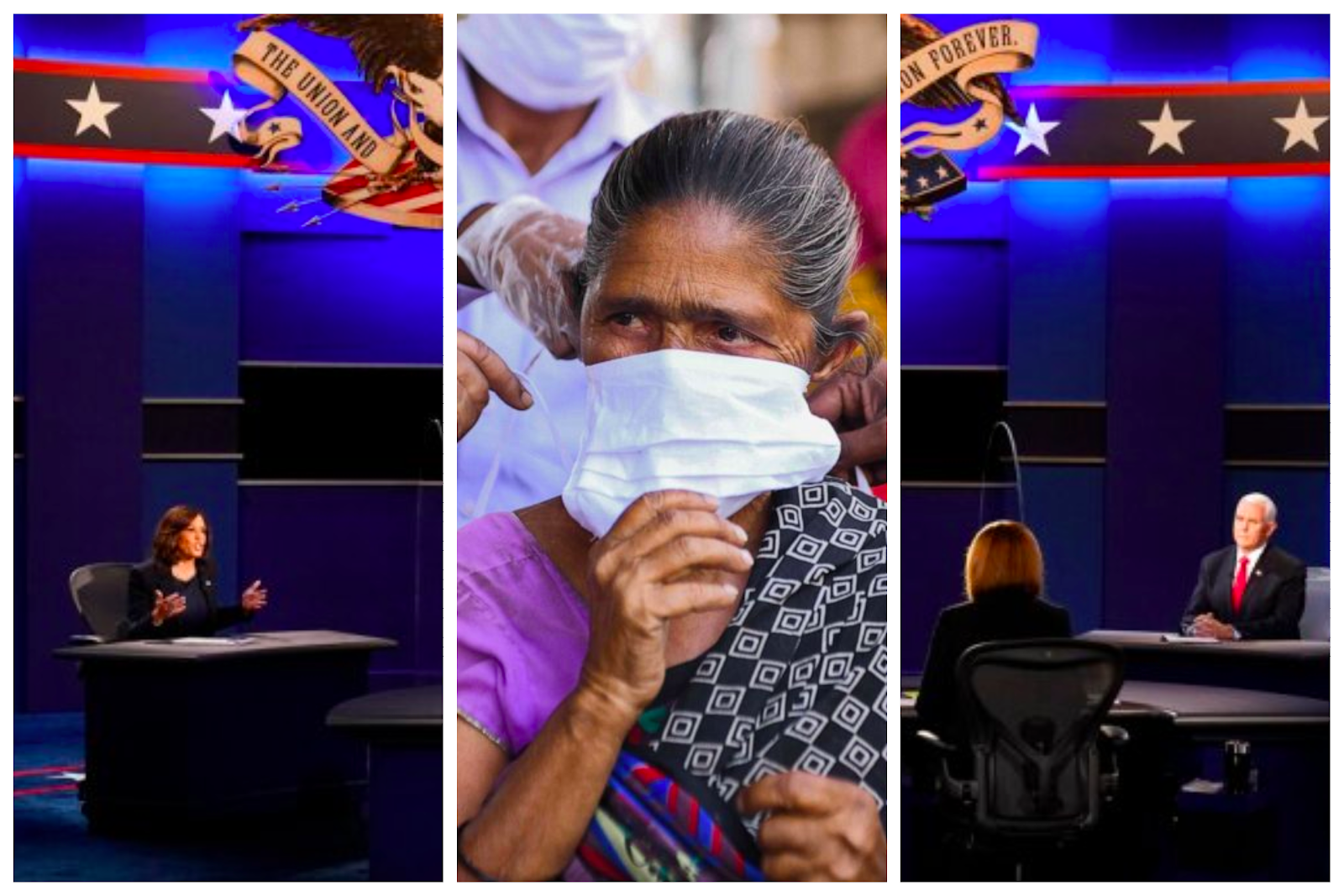Credit: AP; Narinder Nanu/AFP/Getty Images
Olivia Davendra
Vice Presidential candidates debate each other as US Presidential election loom closer
The United States Vice Presidential debate took place over the week pitting Vice President Mike Pence against Democratic pick Senator Kamala Harris.
The candidates were questioned about climate change, race relations, healthcare, foreign policy, Trump and Biden’s age and the government’s handling of Covid-19, which dominated the debate.
When asked about the current administration’s handling of Covid-19, Senator Harris said, “they knew what was happening and they didn’t tell you.”
Vice President Pence responded by saying “I want the American people to know… from the very first day, President Donald Trump has put the health of America first.”
It is still unclear if President Trump has recovered from his Covid-19 diagnosis from last week.
Auckland out of its second lockdown ahead of impending Federal Election
New Zealand has lifted the second round of restrictions placed on Auckland this week.
The nation is domestically rid of the virus except for those in hotel quarantine and one patient who is currently receiving treatment in the hospital.
New Zealand’s national alert level has dropped to one. Wearing masks is now considered non-compulsory but is still recommended while Covid-19 is considered ‘contained’.
In August there was a rise in infection rates which saw the nation’s largest city go back into level three restrictions as cities around Auckland slowly dropped to level two and level one restrictions.
The positive milestone comes as the population heads towards a federal election this month.
India may surpass the US in Coronavirus infection numbers
India has surpassed a grim milestone this week with over 100,000 people dying due to Coronavirus complications across the country.
The milestone comes as the nation moves towards becoming the most severely infected country around the globe and will most likely surpass the United States.
Since April new case numbers per day have surpassed 1000, with new infection rates peaking in mid-September which averaged over 90,000 cases per day.
This week’s numbers highlighted the lowering of positive Covid-19 tests with over 60,000 to 70,000 individuals being diagnosed per day.
India’s Coronavirus recovery percentage was recorded at 85.25%, with a fatality rate of 1.54% on Thursday this week.
The surge in case numbers occurred after the country’s nationwide lockdown was eased in June to help the city and rural populations revive the economy again.
Millions of tonnes of plastic found in the ocean by researchers funded by CSIRO
The CSIRO has funded and published a report which estimates “there could be as much as 14.4 million tonnes of MP (microplastics: plastic between 5 mm and 1 μm) in the top 9cm of sediment throughout the world’s ocean.”
The findings do not account for coastal plastic or the ‘missing plastic’ of the world.
Plastic pollution in the ocean is becoming an issue as severe as climate change with an estimation from 2017 stating over one million plastic bottles are sold per minute across the globe.
The pollutant can cause harm to marine wildlife and birds and these toxins can be exposed to humans through seafood consumption.
The 2020 Nobel Prize Laureates announced this week
The 2020 Nobel Prize awards were announced this week to honour achievement in science, literature, economics, and humanitarianism.
The World Food Programme (WFP) was awarded the esteemed prize for its efforts to help feed the hungry and help resolve conflicts across the globe.
American Poet Louise Glück was awarded “for her unmistakable poetic voice that with austere beauty makes individual existence universal” in the literature category.
In Physics the award was presented to three scientists, Roger Penrose and jointly to Reinhard Genzel and Andrea Ghez for their work on black holes.
While for Physiology or Medicine it was also jointly awarded to Harvey J. Alter, Michael Houghton and Charles M. Rice for their discovery of the Hepatitis C virus.
And for the first time in history two women together, Emmanuelle Charpentier and Jennifer A. Doudna, were awarded the prize in Chemistry “for the development of a method for genome editing.”
The announcements were streamed live with the award for Economics being presented early next week.

